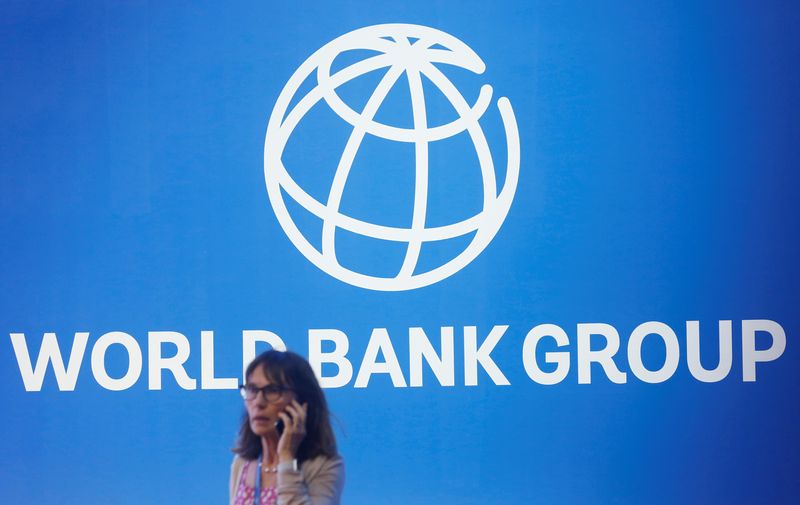By Andrea Shalal
WASHINGTON (Reuters) -The World Bank on Thursday proposed steps that would boost its lending to developing countries by an additional $100 billion over a decade as part of an ongoing reform process aimed at helping the bank expand its mission to include climate change.
In a 24-page report to the joint ministerial committee that oversees the bank and the International Monetary Fund (IMF), the bank's management said it would ask shareholders to approve a hybrid capital measure and a new portfolio guarantee platform that together could boost lending by more than $100 billion.
That amount would come on top of measures already approved that will boost the bank's lending to developing countries by up to $50 billion - all part of a big U.S.-led push to create "a better and bigger bank."
The report, published ahead of the Oct. 9-15 IMF-World Bank annual meetings in Marrakech, Morocco, bears the clear imprint of new World Bank President Ajay Banga, who took office in June.
It reflects the increasing urgency expressed by its biggest shareholder, the United States, about creating a credible alternative for developing countries to what Washington sees as problematic lending by China.
"Extraordinary times require urgent action and new solutions," the bank wrote in the paper, citing rising geopolitical tensions, the existential threat of the climate crisis and setbacks to global efforts to end poverty.
"We need to evolve our ambition, strengthen our solutions, and enhance our financing to do so."
The bank said achieving its development goals would require a "significant increase" in financing by scaling up financing from multiple sources while maintaining low- or zero-interest loans, also known as concessional financing.
In addition to the proposed steps on hybrid capital and portfolio guarantees, the bank said it was also increasing its bilateral guarantee limit to $20 billion from $15 billion, which would boost the lending capacity of its main lending arm, the International Bank for Reconstruction and Development (IBRD), by $5 billion over a decade.
It said it was also finalizing an agreement for a $1 billion guarantee from the China-led Asian Infrastructure Investment Bank that would further boost IBRD lending.
The bank said it had made significant progress in its plans to expand public and private partnerships to leverage even more funding, and could also reach out to non-government institutions and philanthropies.

It said it was also proposing a new debt clause that will allow countries to temporarily defer principal debt payments in case of severe natural disasters,
Lending could be further expanded by using the bank's callable capital - funds pledged by members in the event of a crisis - but further discussions were needed with shareholders and credit ratings agencies, it added.